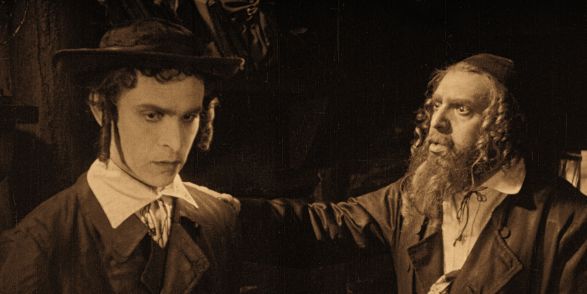
Ernst Deutsch and Avrom Morewsky in ‘Das alte Gesetz’, (‘The Ancient Law’), GER, 1923, directed by Ewald André Dupont
Source: Deutsche Kinemathek
Berlinale Classics 2018
The Berlinale Classics bring digitally restored film classics and rediscoveries back to the big screen.
Classics
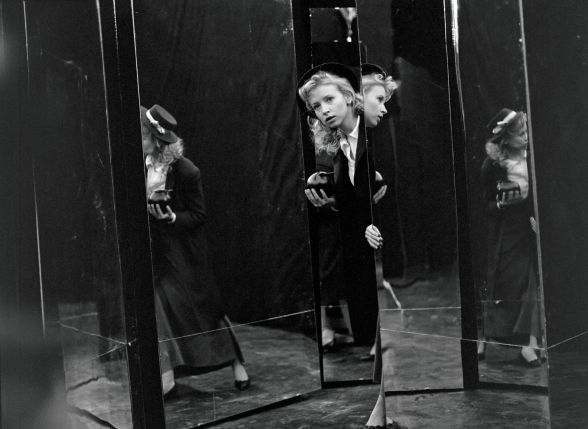
© István Jávor
Az én XX. századom
(‘My 20th Century’), HUN/FRG, 1949, directed by Ildikó Enyedi
In 1879, as Thomas Alva Edison was lighting up Menlo Park with his first demonstration of the incandescent light bulb, far away in Europe, a dark and joyless childhood was beginning for identical twins Dora and Lili in Budapest. Orphaned and separated as young girls by a quirk of fate, their lives take very different directions. Dora becomes a successful con woman, while Lili joins a group of anarchist revolutionaries. Unknown to each other, their paths cross again briefly on New Year’s Eve in 1899 on the Orient Express. They will ultimately be linked by Z, a cosmopolitan gentlemen who has no idea that he is actually wooing two woman, not one …This first feature by director Ildikó Enyedi, who won the Golden Bear at the 2017 Berlinale for ‘Testről és lélekről’ (‘On Body and Soul’), is a bit like a puzzle. It presents the audience with a romantic love story, a poetic fairy tale, an erotic riddle – and at the same time, an inventory of new technology – electricity, the telegraph, film. Conceived as an homage to silent movies and shot in black-and-white, ‘Az én XX. századom’ references many silent film techniques and tricks. – World premiere of the digitally restored version in 4K DCP.
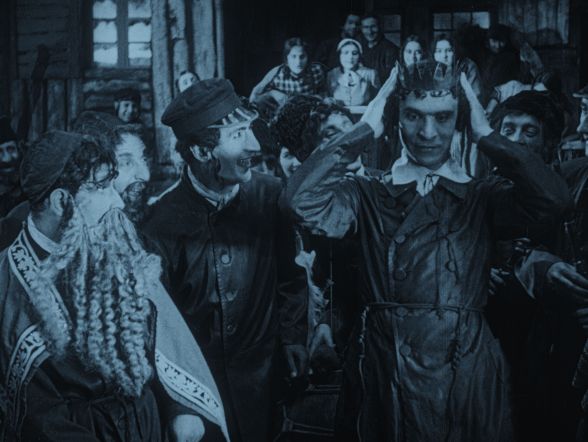
Source: Deutsche Kinemathek
Das alte Gesetz
(‘The Ancient Law’), GER, 1923, directed by Ewald André Dupont
In the mid 1800s in Galicia, Baruch, the son of an orthodox rabbi, yearns to become an actor. Against his father’s will, he leaves the eastern European shtetl where he grew up and joins a travelling theatre troupe. Austrian archduchess Elisabeth Theresia becomes enamoured of the young man. Secretly in love with him, she arranges for him to join the company at Vienna’s Burg Theatre, where he rises to become a celebrated star of the stage … With its complex portrayal of orthodoxy and emancipation, E. A. Dupont’s period film marks a highpoint of Jewish filmmaking in Germany. This new restoration marks the first time that a version corresponding to the lost 1920s German theatrical release will be shown, both in its original length, and with the colourisation digitally restored. New ensemble music composed by Philippe Schoeller will be played by the Orchester Jakobsplatz München with Daniel Grossmann at the podium. – World premiere of the digitally restored version in 2K DCP. Made possible by a cooperation of the Berlin International Film Festival and the Deutsche Kinemathek – Museum für Film und Fernsehen, working with ZDF and ARTE.
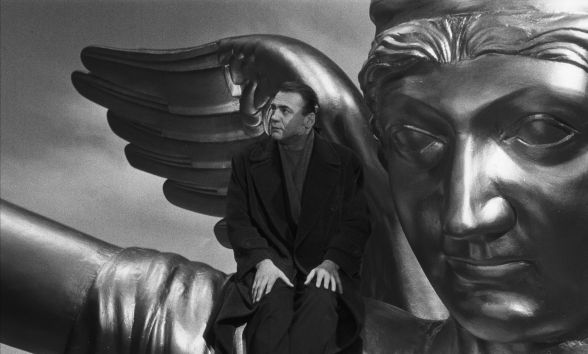
© Wim Wenders Stiftung 2017
Der Himmel über Berlin
(‘Wings of Desire’), GER/F, 1987, directed by Wim Wenders
Damiel and Cassiel, the film’s two main characters, are guardian angels – benevolent, invisible beings wearing long coats. They are unable to intervene in human lives, but they can hear the thoughts of mortals and attempt to comfort them. Damiel falls in love with trapeze artist Marion and wants to become human, even though that means giving up immortality. Peter Falk, playing himself as a former angel, has already taken that fateful step and urges Damiel to leave eternity behind too. The story is told from the point of view of the angels, who see the world in black and white. It is not until Damiel becomes human that the world of colour reveals itself to him … The film was shot on both black-and-white and colour stock. At the time, that required several additional steps in the lab in order to produce a final colour negative, which was several generations removed from the camera negatives. For the digital restoration, the original negative was scanned in 4K, retouched, and colour corrected. So the film can now be shown the way cinematographer Henri Alekan might have envisioned it. – World premiere of the restored version in 4K DCP.
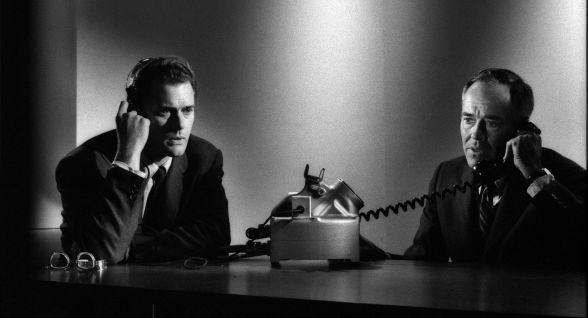
Source: Sony Pictures Entertainment, © Columbia Pictures Corporation Inc.
Fail Safe
USA, 1964, directed by Sidney Lumet
An unknown aircraft appears on the radar of US Air Force command, and bomber squadrons carrying nuclear warheads are automatically put on alert. Almost predictably, the purported threat turns out to be a harmless civilian airliner gone off course. But one bomber wing has already passed the fail-safe point and is flying towards Moscow. Due to technical failures, the military command is unable to recall the planes. A desperate attempt to have US planes shoot down the errant bombers also fails. The president uses the red phone to call the Soviet premier in an attempt to stave off a retaliatory nuclear strike from Russia, and proves willing to go to unusual lengths to prevent an atomic war … The film is an intimate drama about nuclear war. This taut psychological drama is based on the eponymous bestselling book published in 1962, the year of the Cuban missile crisis. It is an impressive critique of the Cold War military doctrine, with its portrayal of politicians and the military mired in the fatal logic of mutually assured destruction. – World premiere of the digitally restored version in 4K DCP.
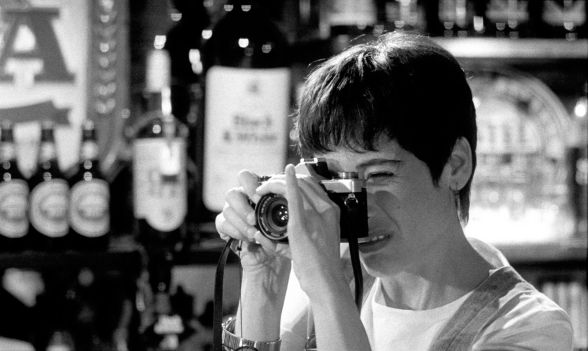
© Yoav Kosh
HaChayim Al-Pi Agfa
(‘Life According to Agfa’), ISR, 1992, directed by Assi Dayan
In a Tel Aviv bar, a world of bohemians, business people, junkies, tourists, pimps, and soldiers all meet. And they are all lonely and lost. The boss Daliah dreams that her lover will remain at her side forever; barmaid Liora looks the other way as her boyfriend sleeps around with any woman who’ll have him. Waitress Daniela yearns to move to America, and Riki, who comes from a kibbutz, has as much trouble coping with life as he does with the big city … The events of a single night, captured in the black-and-white photos that gave the film its title, are a microcosm of a society that considers itself liberal and tolerant, but in which seemingly trivial actions can become explosive. At the time, director Assi Dayan stressed that ‘HaChayim Al-Pi Agfa’ was not meant as a psychographic only of Israeli society, but could have been set anywhere. Not long afterwards, when prime minister Yitzhak Rabin was assassinated in Tel Aviv in 1995, it would become clear how close Dayan’s apocalyptic vision was to the concrete reality in Israel. – World premiere of the digitally restored version in 4K DCP.
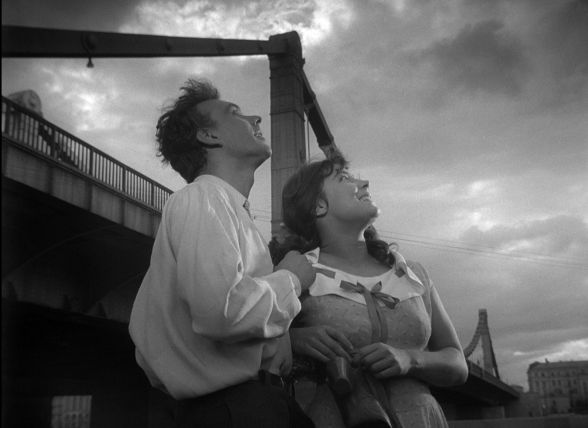
© “Mosfilm” Cinema Concern
Letjat schurawli
(‘The Cranes Are Flying‘), USSR, 1957, directed by Michail Kalatosow
In early summer of 1941 in Moscow, Boris and Veronika are happily in love. They roam the city until the wee hours, laughing and teasing each other. Cranes fly overhead. Then the Germans invade the Soviet Union and everything changes. Boris volunteers to fight and is sent to the front. The lovers do not even have time to say goodbye. When Veronika’s parents are killed in an air raid, Boris’ family takes her in. She is lonely and discouraged, and Boris’ cousin Mark is charged with looking after her. But Mark turns out to be a cad and a thoughtless egotist, who has shirked his duty to join up. Veronika waits for Boris … Made during the period of liberalisation that followed Joseph Stalin’s death, ‘Letyat Zhuravli’ represented Soviet cinema’s first international hit after World War II. Turning its back on socialist realism, the film’s expressionist, at times almost surreal images, and “unchained camera” techniques, were impressive. Instead of heroic victors, it portrays the suffering and sacrifice of the civilian population during war. The film won the Palme d’Or at Cannes in 1958. – World premiere of the digitally restored version in 2K DCP.
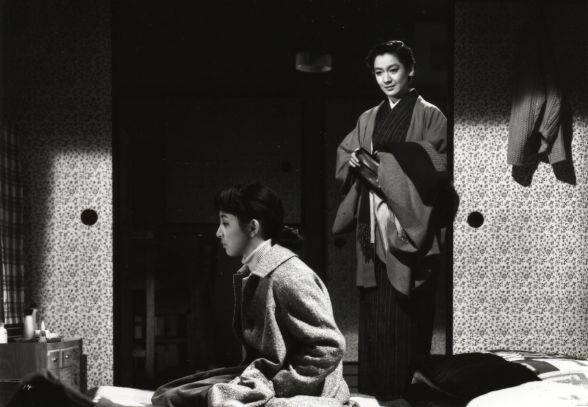
© 1957/2017 Shochiku Co., Ltd.
Tokyo Boshoku
(‘Tokyo Twilight’), JPN, 1957, directed by Yasujiro Ozu
Their mother abandoned sisters Takako and Akiko a long time ago, and their father has had to raise his two daughters alone. Now that they are grown, the respected businessman recognises how unhappy they are. After a fight with her alcoholic husband, Takako returns to live with her father. Her younger sister Akiko, who yearns for a different life, is also part of the household. Akiko has an affair with student Ken, a drifter who spends his time gambling. When she gets pregnant, he cuts her off. When she goes looking for him at a mah-jongg parlour, she meets a woman who knows things about Akiko’s childhood that only a mother could … The theme of the end of a family living together is one that Japanese directing maestro Yasujiro Ozu often reworks, and here he has given it a dramatic and sombre twist. In a barren, cold Tokyo, a young woman is broken by her father’s harsh nature and silence. This largely-unknown work is considered Ozu’s darkest post-war film. – World premiere of the digitally restored version in 4K DCP.